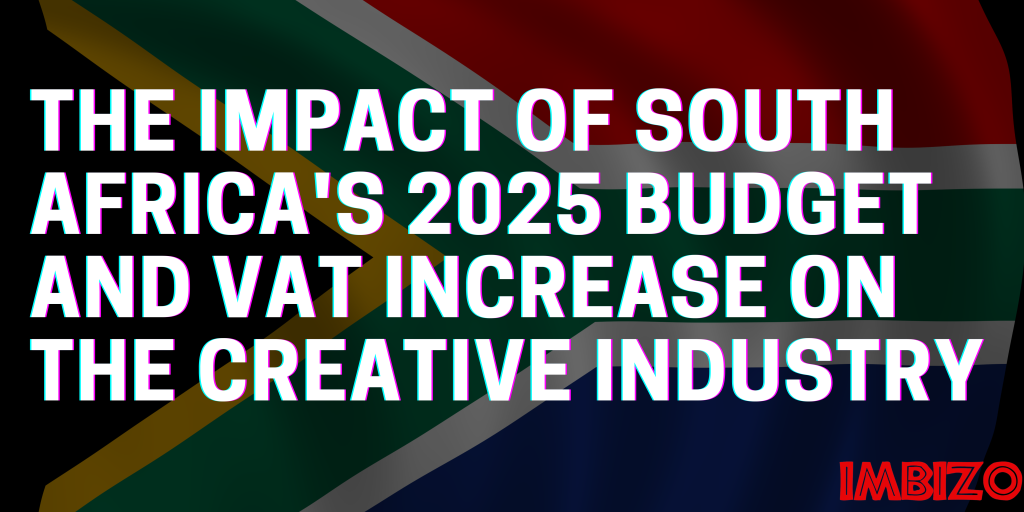The 2025 Budget Speech outlines South Africa’s economic challenges and the government’s strategy for fostering macroeconomic stability, structural reforms, and infrastructure development. Among the key proposals is an increase in the Value-Added Tax (VAT) rate by 0.5% in 2025/26, followed by another 0.5% increase in 2026/27, bringing the VAT rate to 16%. This move aims to generate R28 billion in additional revenue in 2025/26 and R14.5 billion in 2026/27. However, this tax adjustment raises concerns about its impact on various sectors, particularly the creative industry.
How the VAT Increase Affects the Creative Sector
The creative industry, which includes artists, musicians, designers, filmmakers, and cultural enterprises, is deeply influenced by consumer spending. A higher VAT rate will likely increase the cost of goods and services, potentially reducing disposable income and lowering demand for creative products such as music, art, theater, and entertainment events.
- Reduced Consumer Spending on the Arts
With the cost of living rising due to the VAT hike, many South Africans may prioritize essential goods and services over cultural and entertainment activities. This could lead to lower ticket sales for concerts, theater productions, art exhibitions, and festivals. Independent artists and small creative businesses, already operating on tight margins, may struggle to attract audiences willing to pay higher prices. - Increased Operational Costs for Creative Businesses
Creative businesses, including galleries, production studios, and music labels, will face increased costs for materials, equipment, and services due to the VAT increase. Many small enterprises in the sector may be forced to pass these costs onto consumers, making their offerings less competitive. - Limited Sponsorship and Funding Opportunities
With businesses facing higher tax burdens, corporate sponsorships and funding for artistic projects may decline. Many creative professionals rely on private sector partnerships and government grants to sustain their work. If sponsorship budgets shrink, the ability to support emerging artists, fund community projects, and invest in creative innovation could be compromised. - Impact on Freelancers and Independent Artists
The creative industry has a significant number of freelancers and independent professionals who operate outside traditional employment structures. With no inflationary adjustments to personal income tax brackets, their purchasing power will erode, and they may struggle to afford essential tools, studio space, and marketing for their work.
Mitigation Strategies and Policy Considerations
To counter the negative effects of the VAT increase, the government and industry stakeholders should consider implementing support measures for the creative sector, including:
- Tax Relief for Small Creative Enterprises: Special tax exemptions or reduced VAT rates for small businesses in the creative industry could help sustain the sector.
- Increased Government Funding for the Arts: Expanding funding initiatives through the Department of Sport, Arts, and Culture could provide much-needed financial support.
- Public-Private Partnerships (PPPs): Encouraging collaborations between government and private entities to fund creative projects and support local talent.
- Digital Transformation and Global Market Access: Supporting creative businesses in accessing global markets through e-commerce and streaming platforms could help offset losses in domestic consumer spending.
While the 2025 Budget aims to stabilize South Africa’s economy and address fiscal deficits, the VAT increase presents challenges for the creative industry. Reduced consumer spending, increased operational costs, and funding limitations could hinder growth and sustainability in the sector. Proactive policies and financial support mechanisms will be essential to ensure that artists and creative businesses can continue to thrive despite these economic pressures.
